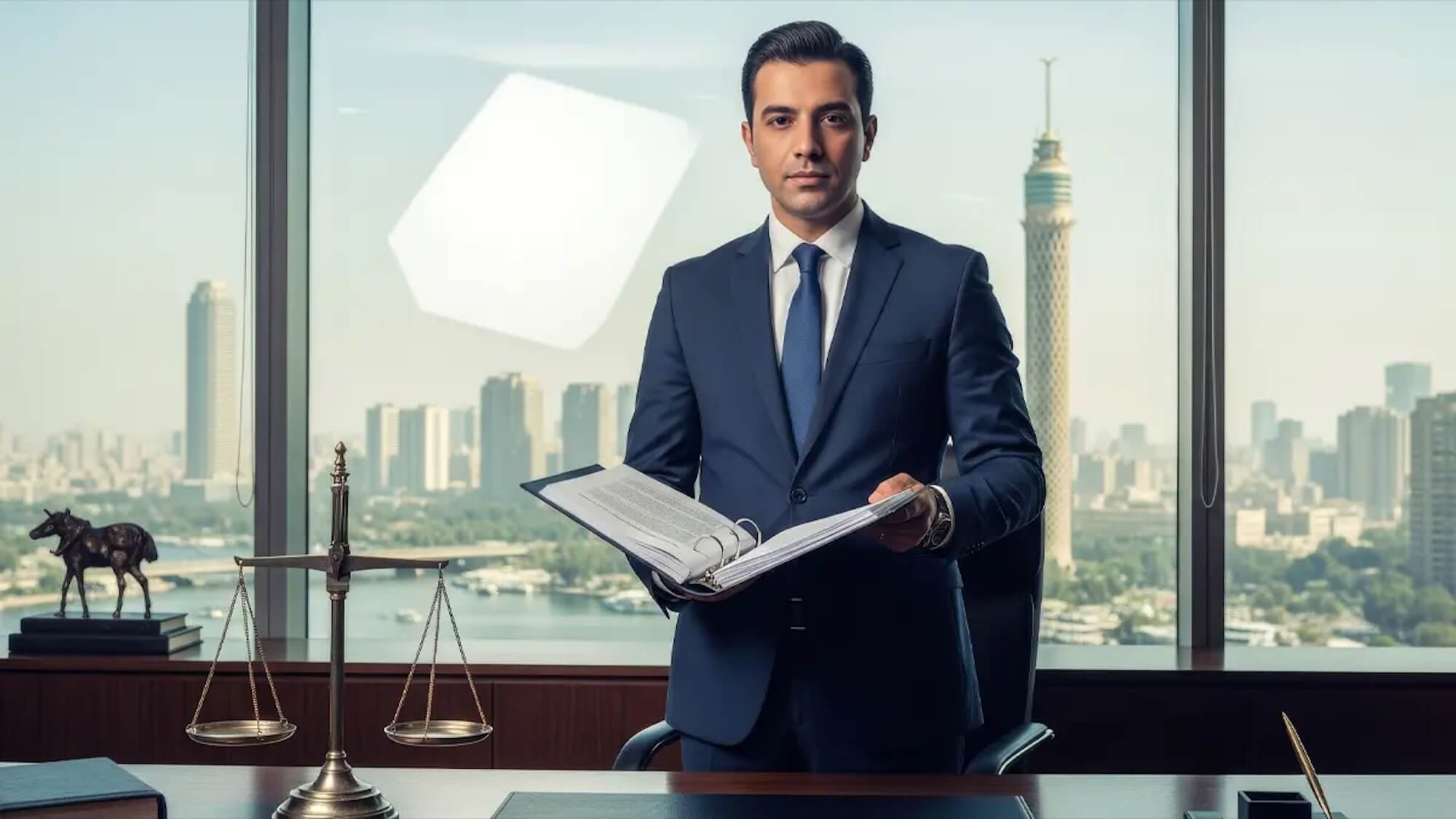I. Introduction
Waste management has been a perpetual problem and is still present in most corners in Egyptian streets, and ever since 2012 there was a noticeable fail in the waste management system due to a lack of adequate nationwide disposal infrastructure. One of the reasons that excites us about the WML is article 27 which limits the manufacture, import, or export of single-used plastic bags, which reminds us of the numerous calls for this action and how often they were raised due to the harmful impact of plastic use on the environment. Moreover, the WML does not only solve this problem but also offers incentives and exemptions to private parties, establishments, and producers of these single-used plastic bags. Further, the Minister of Finance, after coordinating with the competent Minister and the Minister of Trade and Industry, will issue a system of financial and economic incentives and tax and customs exemptions to encourage the production, import, or export of safe, environmentally friendly alternatives for single-used plastic bags. Therefore, tackling existing problems such as single-used plastic bags and any problem that might arise from the limit and ban of these bags by granting a period of reconciliation. This is merely an example of the importance of the WML and how the timing “hit the bull’s eye” with the on-going Covid-19 pandemic.
II. The Regulator
The WML is a clear indication of Egypt’s commitment towards a greener economy and sustainable growth. The WML regulates the collection, storage, and disposal of waste from municipal, construction, agricultural, and industrial areas, among many other types. The WML establishes a regulatory public authority, namely, the Waste Management Regulatory Authority (the “Regulator”) to oversee and monitor waste management. This regulatory effort identifies and categorizes waste types into two main categories: Hazardous and Non- Hazardous, which we will delve into later in this article.
In this regard, the Regulator will have many regulatory powers over the concerned and competent authorities and regulatory bodies in order to organize, follow up, monitor, and evaluate everything related to the activities of integrated waste management to ensure sustainable development and follow up on the plans necessary to organize waste management in cooperation with public and private organizations. The Regulator is also responsible for encouraging industrial growth and outlining a national strategy for waste management as well as the regulations and guidelines for all such activities.
III. General Policies
The WML allocated commitments to the generator or the owner of waste. These commitments and measures are set to reduce waste generation, promote reuse, ensure the recycling, treatment, and final disposal of waste in order to reduce damage to public health and the environment. The generator or owner of waste will bear the cost of integrated waste management in a healthy and environmentally safe manner, which will be specified by the executive regulations of the WML. Provided that the executive regulations of the WML specify the standards for practicing waste management activities in a healthy and environmentally sound manner, the licensed generator shall undertake one or more activities of integrated waste management at the sites and facilities designated for such in accordance with the provisions of the WML. Furthermore, the licensed generator shall be responsible for training and preparing its workers to abide by the rules and regulations set forth under the WML.
The WML allows the competent administrative authority to establish a company, by itself or in participation with others, for the purpose of carrying out any of the services of waste management in accordance with the provisions of Law No. 127 of 2015 authorizing persons of public law to establish Joint Stock Companies. More importantly, the advantages, incentives, guarantees, and exemptions stipulated under the investment law, promulgated by Law No. 72/2017, shall apply to companies and establishments whose main purpose is to carry out integrated waste management processes.
Furthermore, establishments, companies and persons authorized to engage in an integrated waste management activity may allocate a percentage not exceeding (10%) of their annual net profits to support and strengthen the integrated waste management system. Such costs and expenses spent will be deducted in accordance with the provisions of the Income Tax Law promulgated by Law No. 91/2005.
It is also important to point out that a feed-in tariff for energy projects generated from waste has been issued by the Prime Minister, whereby the value of that tariff is determined after preparing the technical and economic studies required and what is to be borne by the companies affiliated with the electricity sector is prepared by the Electricity Utility and Consumer Protection Regulatory Authority to reach the fair value that stimulates investment in such a field.
IV. Non-Hazardous Waste Materials
The WML provides that it is not permissible to practice any of the activities the integrated management of non-hazardous waste as well as the importation of these wastes without obtaining the required license. Furthermore, it is not permissible for the licensee to assign its license to others except after obtaining the prior approval of the Industrial Development Authority (the “IDA”), in accordance with the conditions specified by the executive regulations of the WML.
1. Municipal Waste:
The WML provides that units for the integrated management of municipal waste shall be established within the competent administrative authority responsible for the integrated management of municipal waste. Such shall have enough departments in the agencies of cities, centers, neighborhoods, and villages to ensure the implementation of the local plan prepared in light of the national strategy for waste management.
Ownership of municipal waste reverts to the competent administrative authority as soon as the owner abandons it in the places designated for it or once it is delivered to the persons authorized to do so. Further, it is not permissible for the owner of the municipal waste to abandon it or deliver it to persons or places not authorized to do so. In this regard, the WML imposes a monthly fee for waste management services. These fees are classified and categorized as follows:
| Residential Units | EGP 2-4/Month |
| Independent Commercial Units and Units used as headquarters for self-employment activities | EGP 30-40/Month |
| Governmental Establishments, Public Authorities, Public Sector Companies, Public Business Sector, Hospitals, Health Care Facilities, and Private Educational Establishments’ Fees | No minimum fee, but a maximum fee is set at EGP 5,000/Month |
| Commercial, Industrial and Tourist Establishments, Space Lands utilized for Commercial Activities, Companies and Administrative Buildings belonging to the Private Sector, Commercial Centers, Hotels and Sports Facilities, and Similar Establishments or Activities | No minimum fee, but a maximum fee is set at EGP 20,000/Month |
It must be noted that places of worship are fully exempted, and Micro enterprises are partially (half) exempted from paying such fees. Furthermore, the fees for these categories may be increased every 2 years at the rate of 10%, provided that the increase does not exceed twice the maximum limit designated for each category in total.
2. Demolition and Construction Waste:
The IDA, in cooperation with the competent administrative authorities, shall review the current system for collecting, transporting, and disposing of demolition and construction waste. The WML clarifies that the Regulator shall take all necessary measures to implement the new system and provide sites designated for treatment and final disposal of demolition and construction waste, as well as coordinating with the IDA to supervise the implementation of the aforementioned procedures.
3. Agricultural Waste:
The generator or holder of agricultural wastes may take all necessary measures to reuse or treat agricultural waste in the places they generate or in the places specified by the Regulator and is not to be dumped in waterways or disposed of in places other than those designated for such. The executive regulations of the WML will specify the measures that the generator of agricultural waste should undertake.
4. Industrial Waste:
The generator of industrial waste must keep a record of this waste called “Industrial Waste Registry.” A model for this record, which includes its classification, quantities, types, and how to deal with it, shall be established by the executive regulations of the WML. Furthermore, industrial establishments are expected to submit to the Public Authority for Industrial Development a detailed plan for managing the industrial waste generated or expected to be generated from the concerned facility. In addition, the Regulator in cooperation with the Ministry of Commerce and Industry will set up a “Green Label” system to motivate manufacturers to increase the percentage of recyclables and reduce the production of industrial waste. This “Green Label” is a certificate granted to manufacturers when designing their products in a way that limits the generation of waste or helps to recycle it after consumption. The government incorporated this system to introduce the consumer to environmentally friendly products by placing the green label on such products.
V. Hazardous Waste
As for hazardous waste, the WML has prohibited any action regarding hazardous materials and waste except if a license from the competent authority has been obtained. In this regard, prohibited actions include the following:
- Handling of hazardous materials and waste.
- Exporting and Importing hazardous materials or waste.
- Establishing or Managing any facilities for the purpose of circulation or integrated management of hazardous materials or waste; and
- Passage of ships carrying hazardous materials or wastes through the territorial sea or the exclusive economic zone of the Arab Republic of Egypt.
A technical committee shall be established within the Regulator from the administrative authorities concerned with hazardous materials and wastes, to deal with the developing, issuing and reviewing of unified lists of hazardous materials and wastes. Moreover, the owner of the facilities responsible for generating hazardous wastes will be obliged to submit an insurance policy or a letter of guarantee to the competent authorities to cover potential damages and losses in the event of an accident or pollution resulting from the undertaking of any of these activities.
Additionally, a financial guarantee certificate in the form of an insurance, compensation deed, or other security must be presented upon entry by ships transiting or registered in the Arab Republic of Egypt carrying hazardous materials or waste and passing through the territorial sea or the exclusive economic zone of the Arab Republic of Egypt, provided that such a deed is valid and covers any potential damages and compensations that are estimated by the competent administrative authority.
VI. Penalties
What incentivizes us to believe in this eminent change, even more, is the inclusion of coercive methods. The penalties provided under the WML shall ensure the implementation of a green and sustainable economy by including prison sentences up to (5) years as well as financial penalties that range from EGP 1,000 to EGP 25 Million.
VII. Conclusion
The long-overdue WML is finally here for the rescue! While checking the new waste management law you will find that it is hard to stay calm, why you ask? Maybe it’s a bit early to feel excited about it, however, seeing how Egypt is taking initiatives and moving forward to achieve a sustainable and green economy, we surely cannot deny ourselves a little excitement. We are very much looking forward to the issuance of the executive regulations and seeing this new law put into action.







